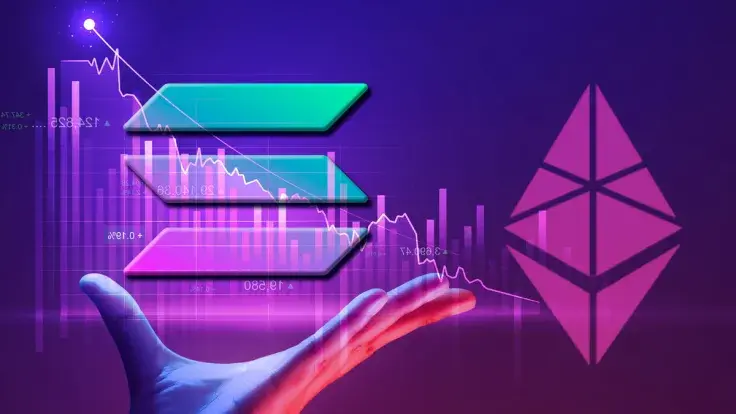
Disclaimer: The opinions expressed by our writers are their own and do not represent the views of U.Today. The financial and market information provided on U.Today is intended for informational purposes only. U.Today is not liable for any financial losses incurred while trading cryptocurrencies. Conduct your own research by contacting financial experts before making any investment decisions. We believe that all content is accurate as of the date of publication, but certain offers mentioned may no longer be available.
Evan Van Ness, famous Ethereum advocate and Solana critic, assumed that the "Ethereum killer" may go to zero as the technical analysis shared by other users suggests another 82% plunge from the current price back to values of 2021.
On the three-day chart of SOL, the analyst shared his view on the upcoming movement of the asset, comparing it to the previous growth and correction cycles of the cryptocurrency. In April 2022, SOL's price spiked by more than 80% and then faced an almost immediate reversal two weeks after losing 82%.
Back to the intrinsic value of zero?
— Evan Van Ness 🦇🔊 (@evan_van_ness) August 22, 2022
Since reaching the local bottom in June, Solana successfully bounced with an 87% price increase and reached the price level of $47. On Aug. 14, following the correction on the cryptocurrency market, SOL entered the local downtrend and is now losing more than 25% of its value.
The analyst's assumption is that the asset will enter a similar downtrend that will lead to the ~80% plunge, which puts SOl on a level the market has not seen since 2021.
How likely is it to happen?
The alleged 80% dump prediction is based purely on the past performance of the assets, which is not always a correct way of forecasting movements in the foreseeable future. Such a significant price drop would only happen with the "help" of the cryptocurrency market as a whole.
In case of at least a 40% price drop on Ethereum or BTC, Solana may enter the amplitude downtrend and reach values close to $10. As for intrinsic value, the network has proven its ability to hold thousands of decentralized projects and function properly — just not as stable as one would like.

 Vladislav Sopov
Vladislav Sopov Dan Burgin
Dan Burgin